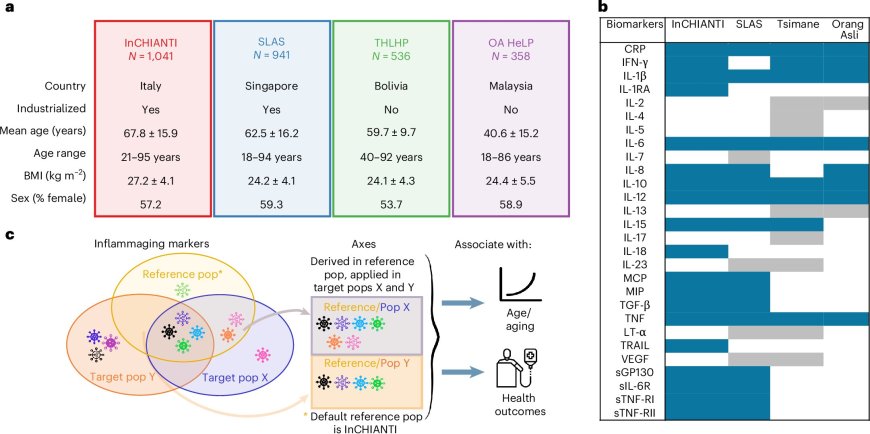Study Shows Inflammation with Aging Varies Among Human Populations
A recent study from Columbia University Mailman School of Public Health challenges the idea that inflammation is a universal part of aging. The research indicates that chronic inflammation associated with aging, known as 'inflammaging,' is more prevalent in industrialized populations compared to Indigenous groups. The findings, published in Nature Aging, suggest that factors like lifestyle and infection rates play a significant role in shaping inflammation patterns across different populations.

This study examined the relationship between aging and inflammation in different populations. The research found that chronic, low-grade inflammation associated with aging, known as inflammaging, may not be universal among humans. The study analyzed data from industrialized and Indigenous populations, revealing that inflammation levels vary significantly across different groups. In industrialized populations, inflammaging was linked to chronic diseases, while in Indigenous groups, inflammation was more related to infectious disease burden.
Interestingly, Indigenous populations showed high levels of inflammation, but these did not increase with age and did not lead to chronic diseases common in industrialized societies. The study used a panel of 19 cytokines to assess inflammation patterns, finding that these markers aligned with aging in industrialized populations but not in Indigenous groups.
Overall, the findings suggest that immune-aging processes are population-specific and influenced by environmental and lifestyle factors. The study challenges the idea of universal aging biomarkers and highlights the importance of considering context-specific factors when studying aging and inflammation.
According to the source: Medical Xpress.
What's Your Reaction?
 Like
0
Like
0
 Dislike
0
Dislike
0
 Love
0
Love
0
 Funny
0
Funny
0
 Angry
0
Angry
0
 Sad
0
Sad
0
 Wow
0
Wow
0

























































































































































